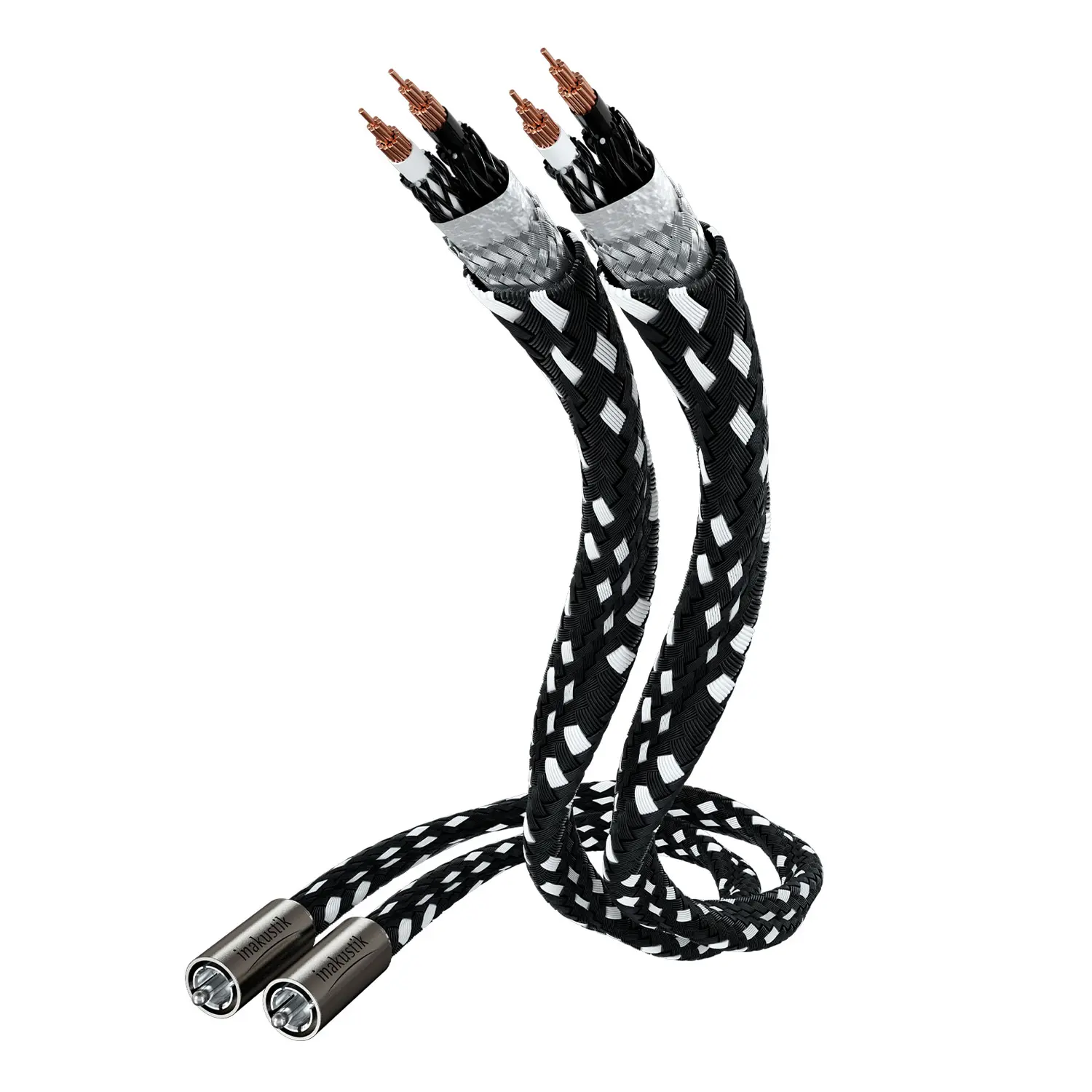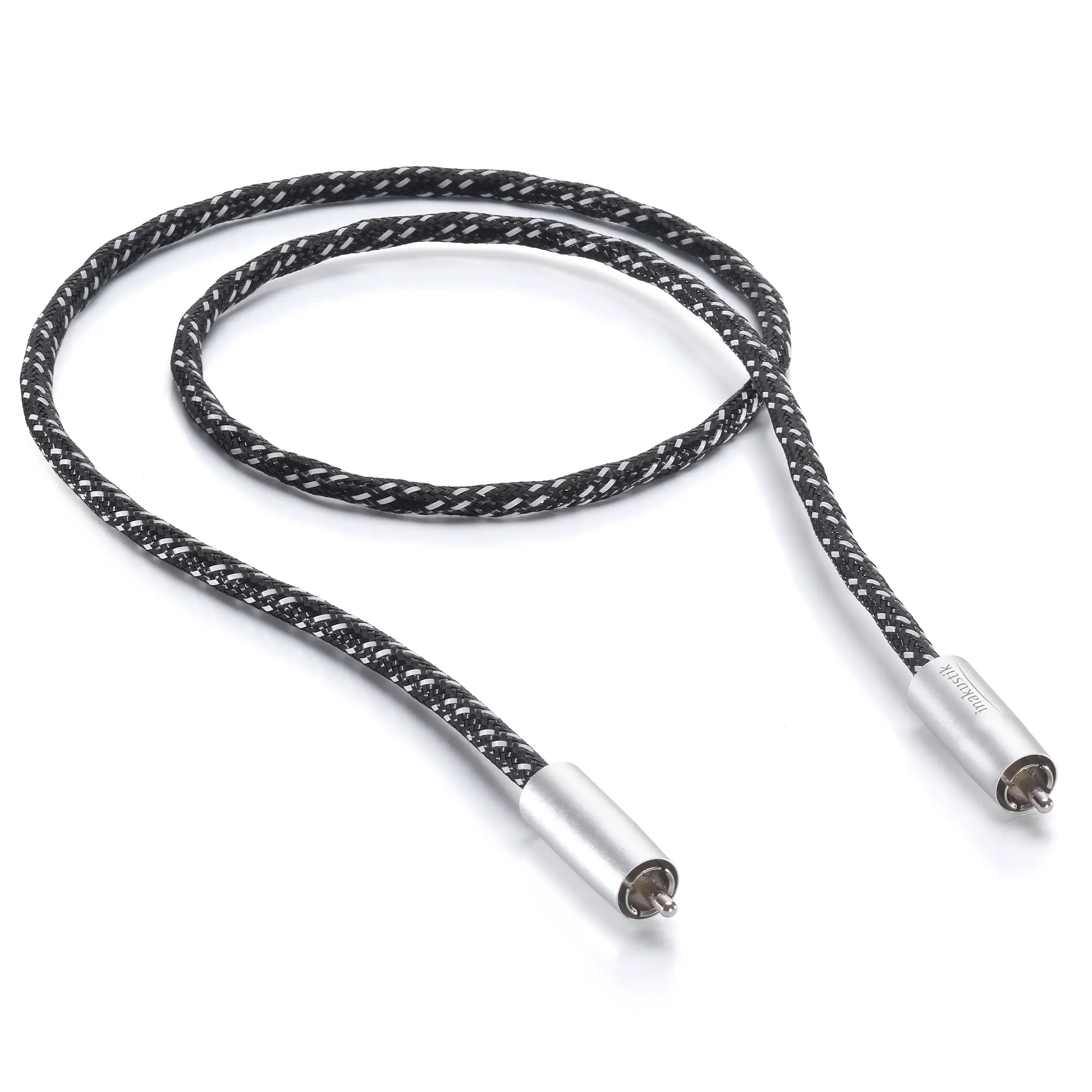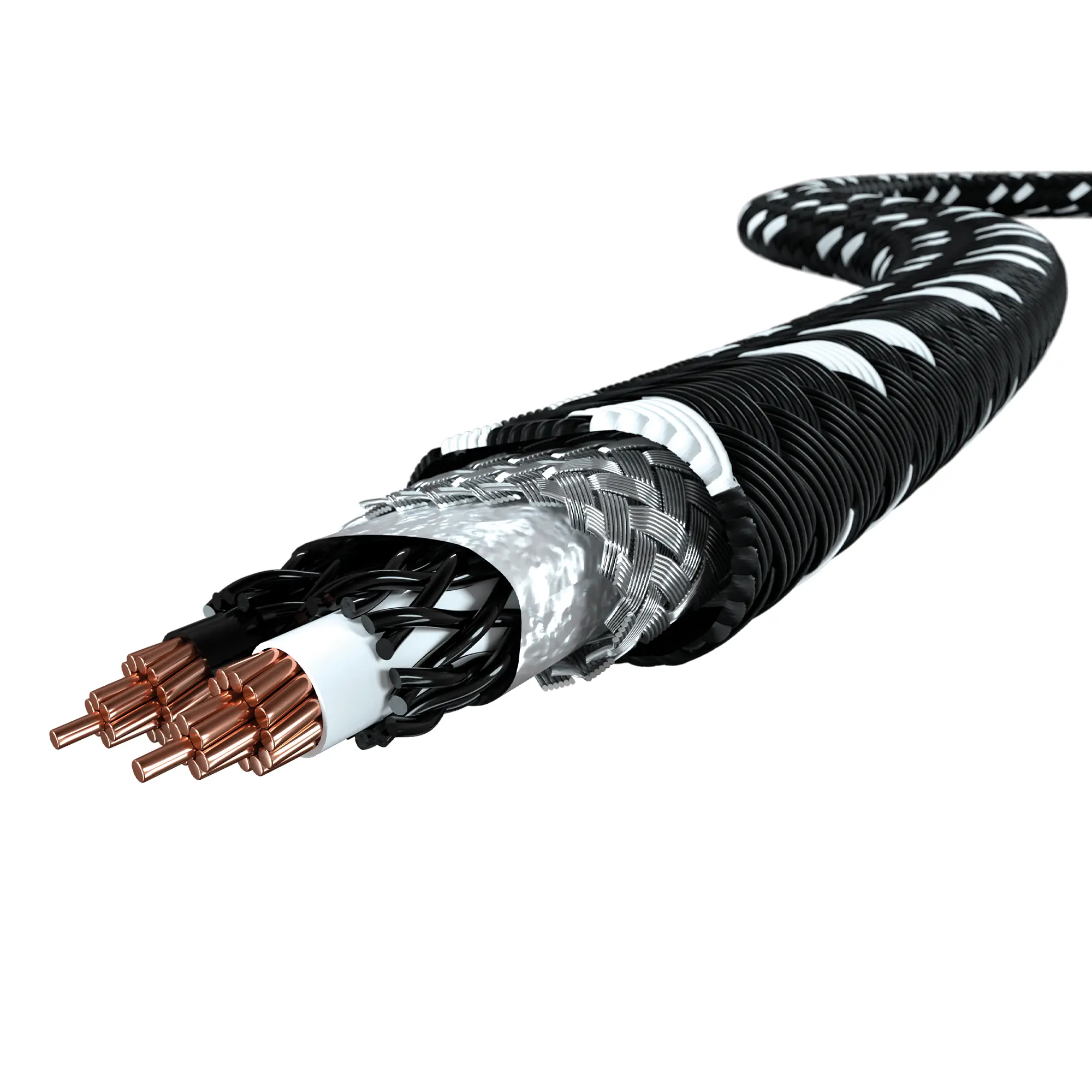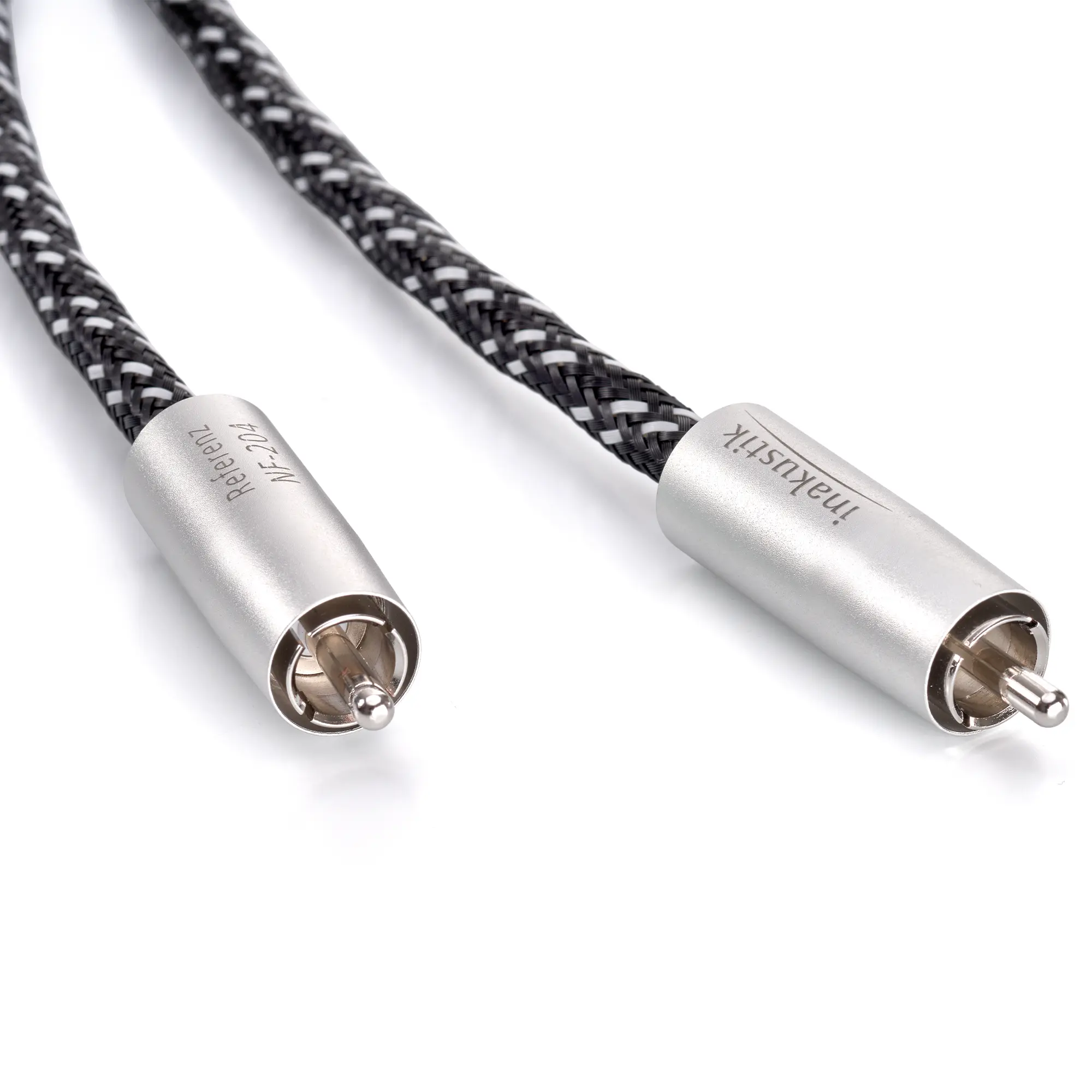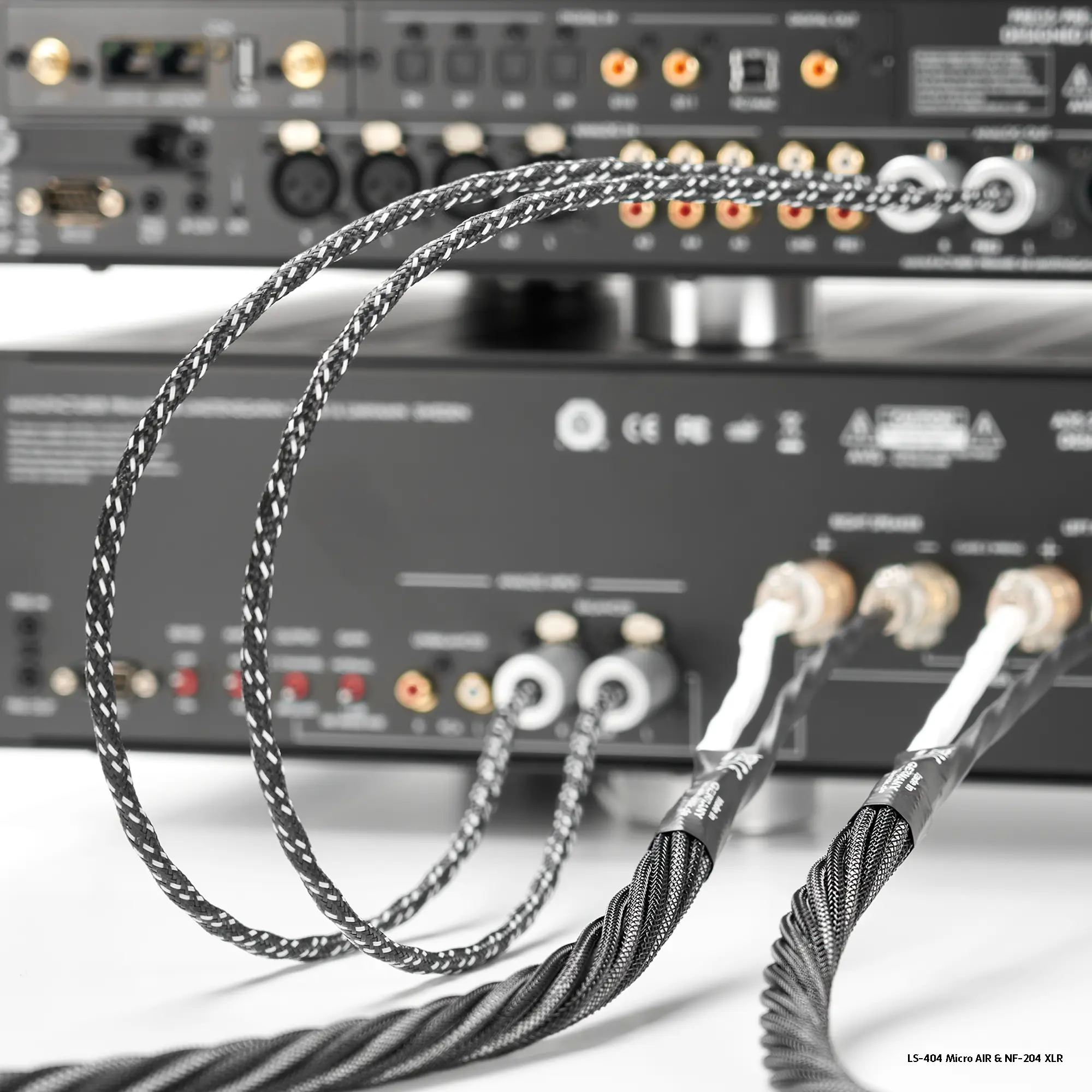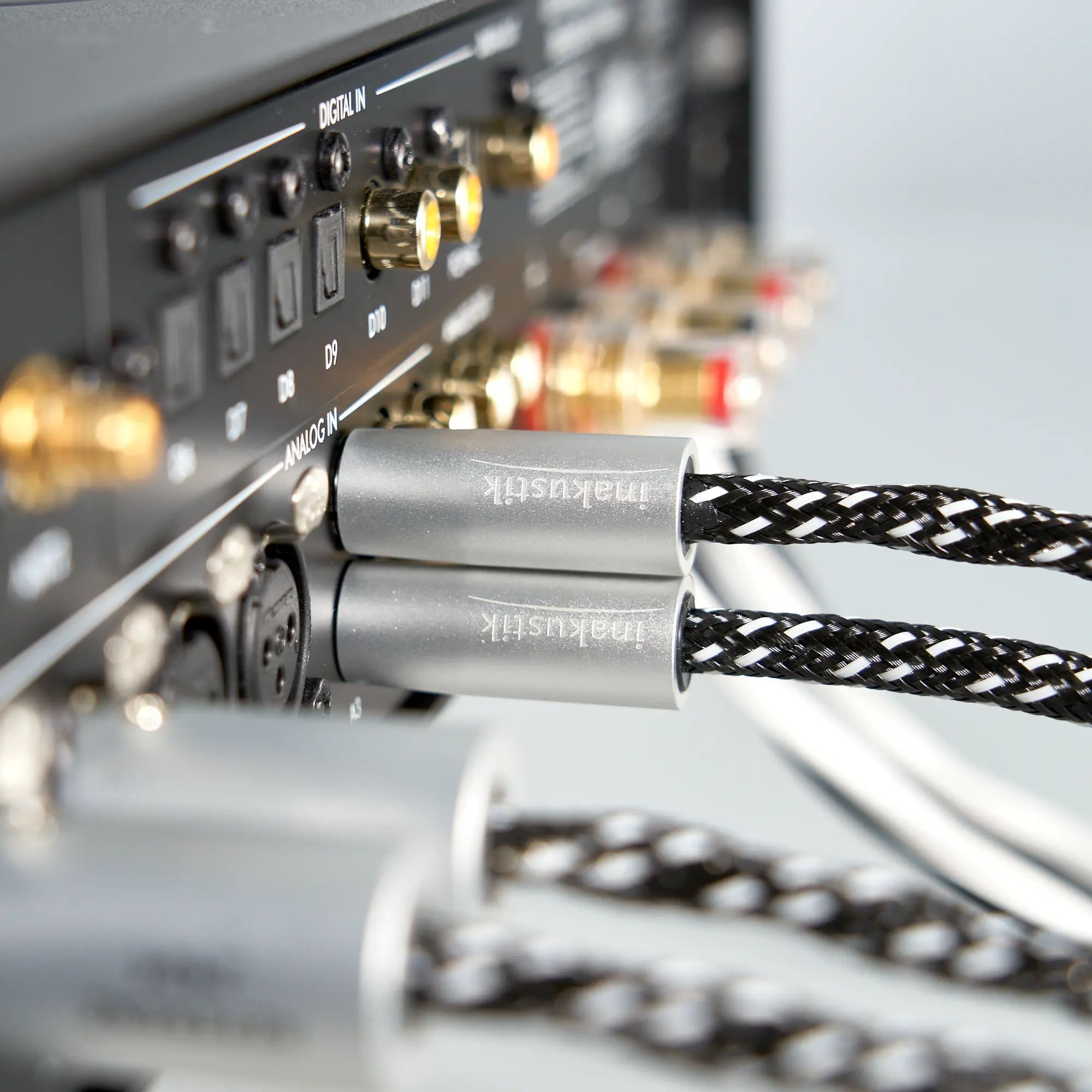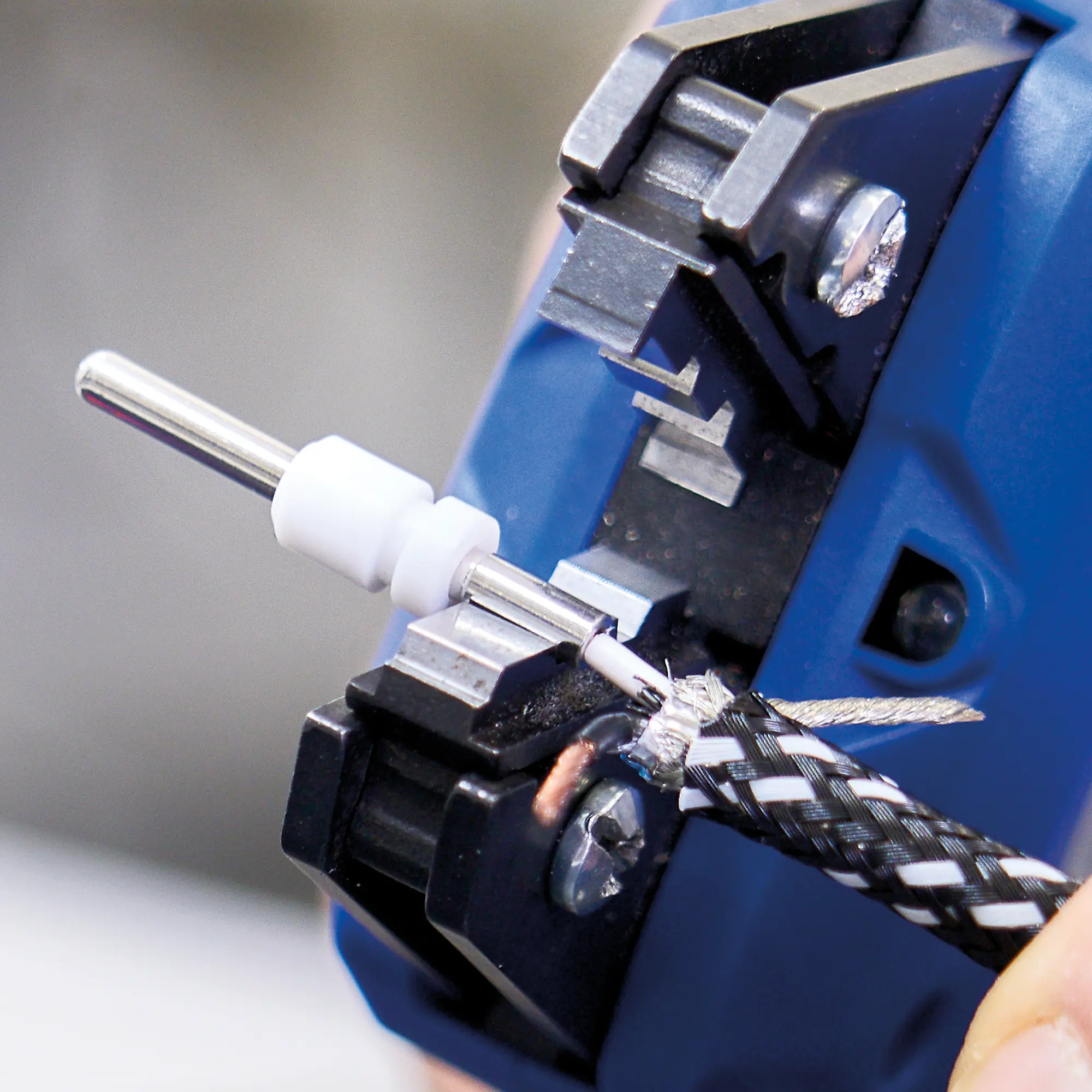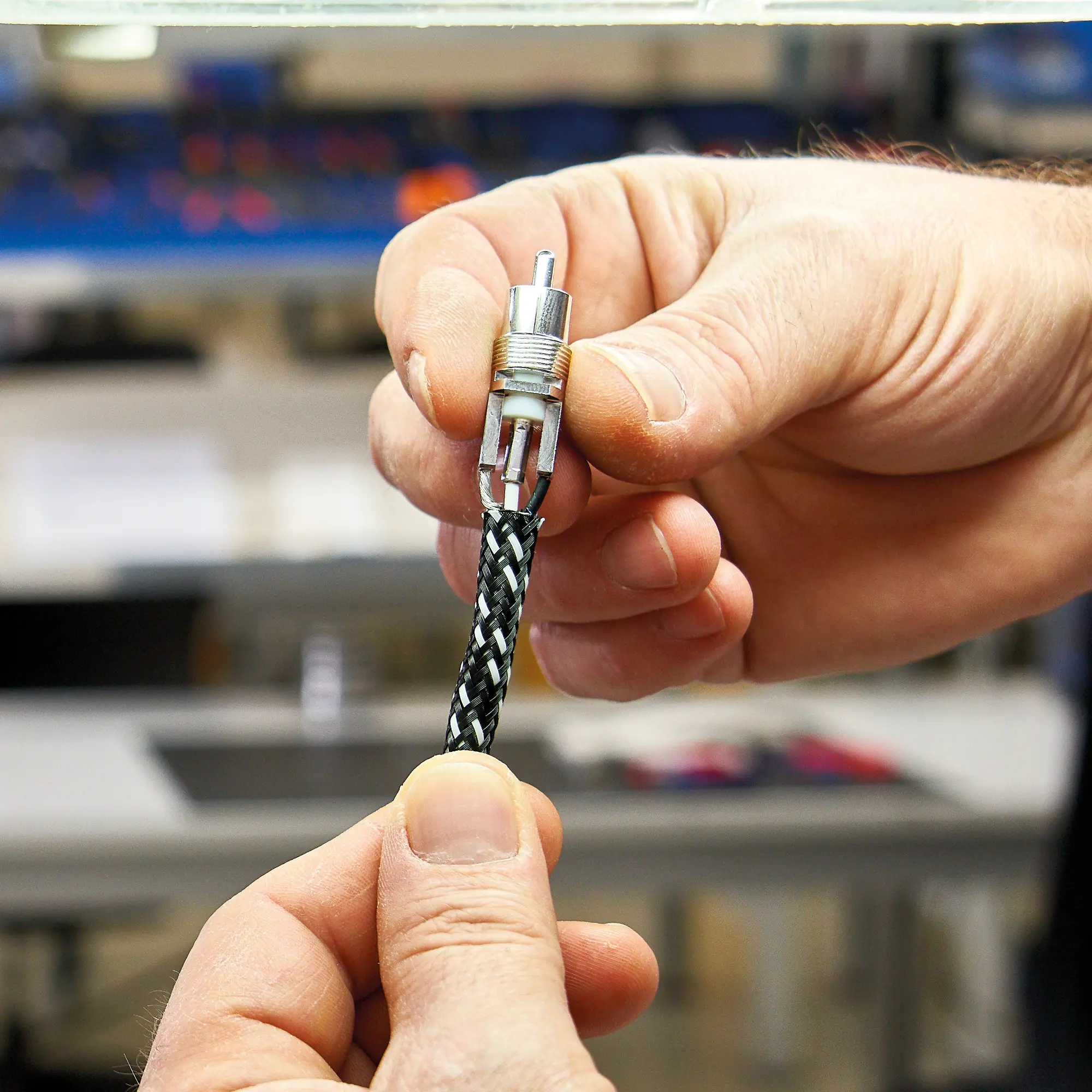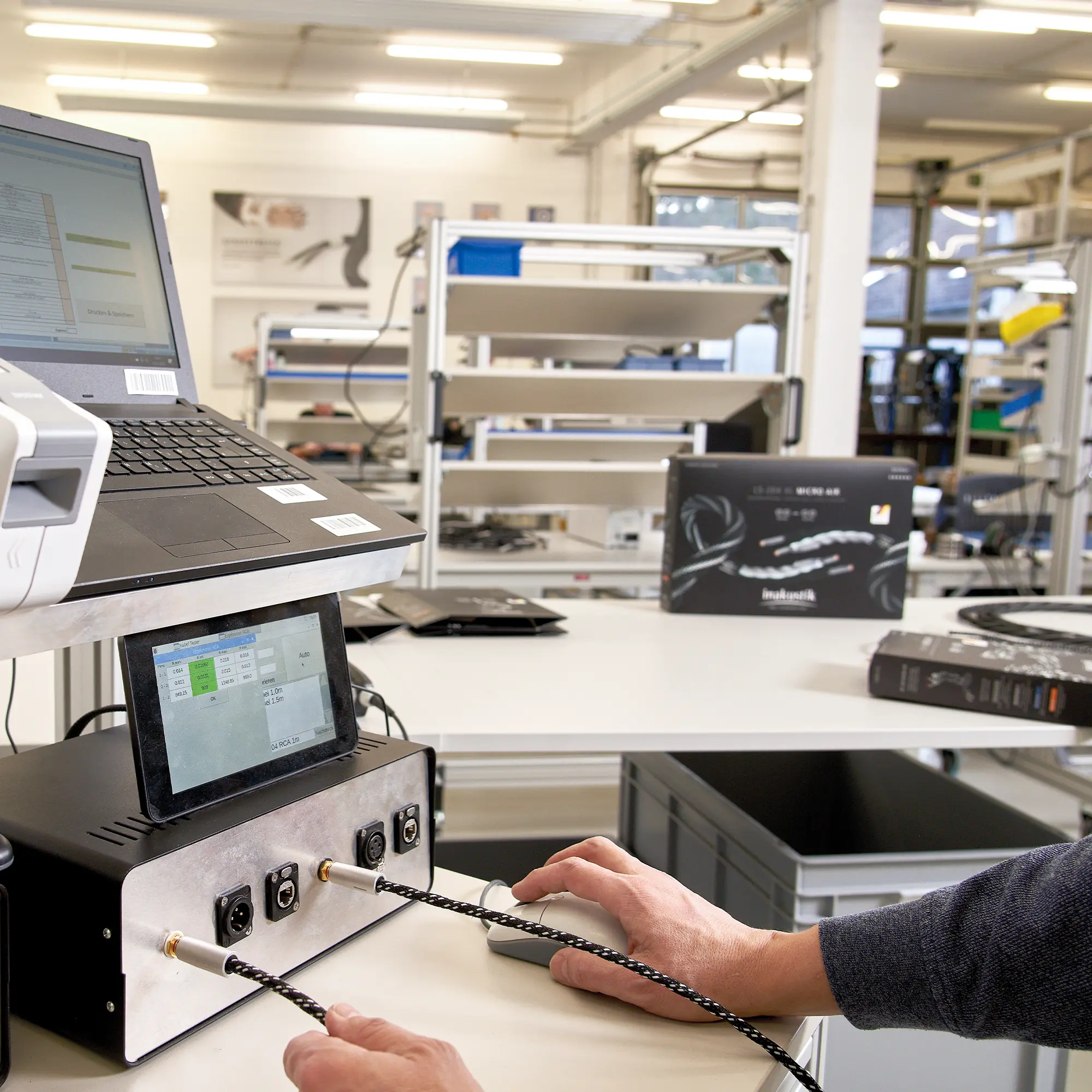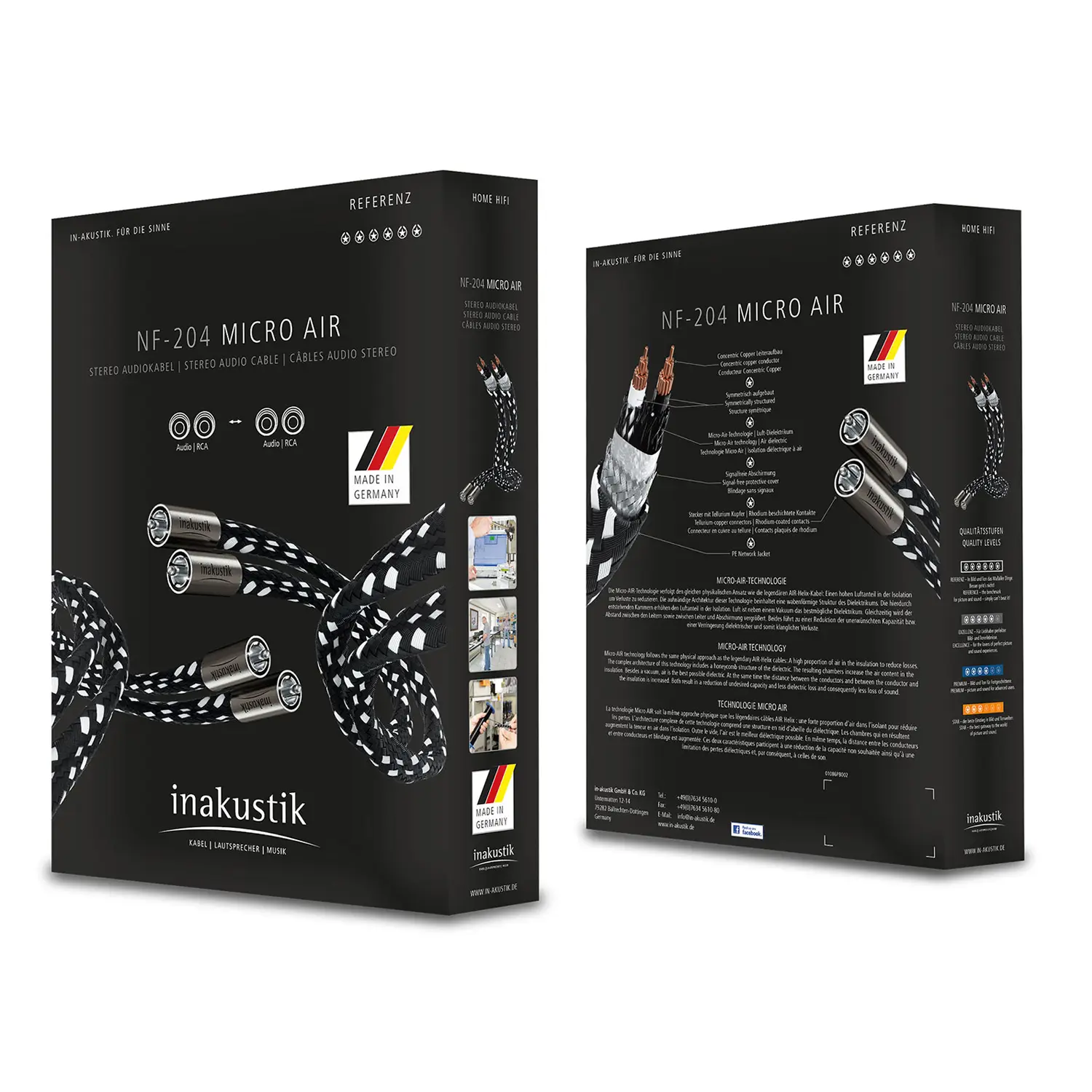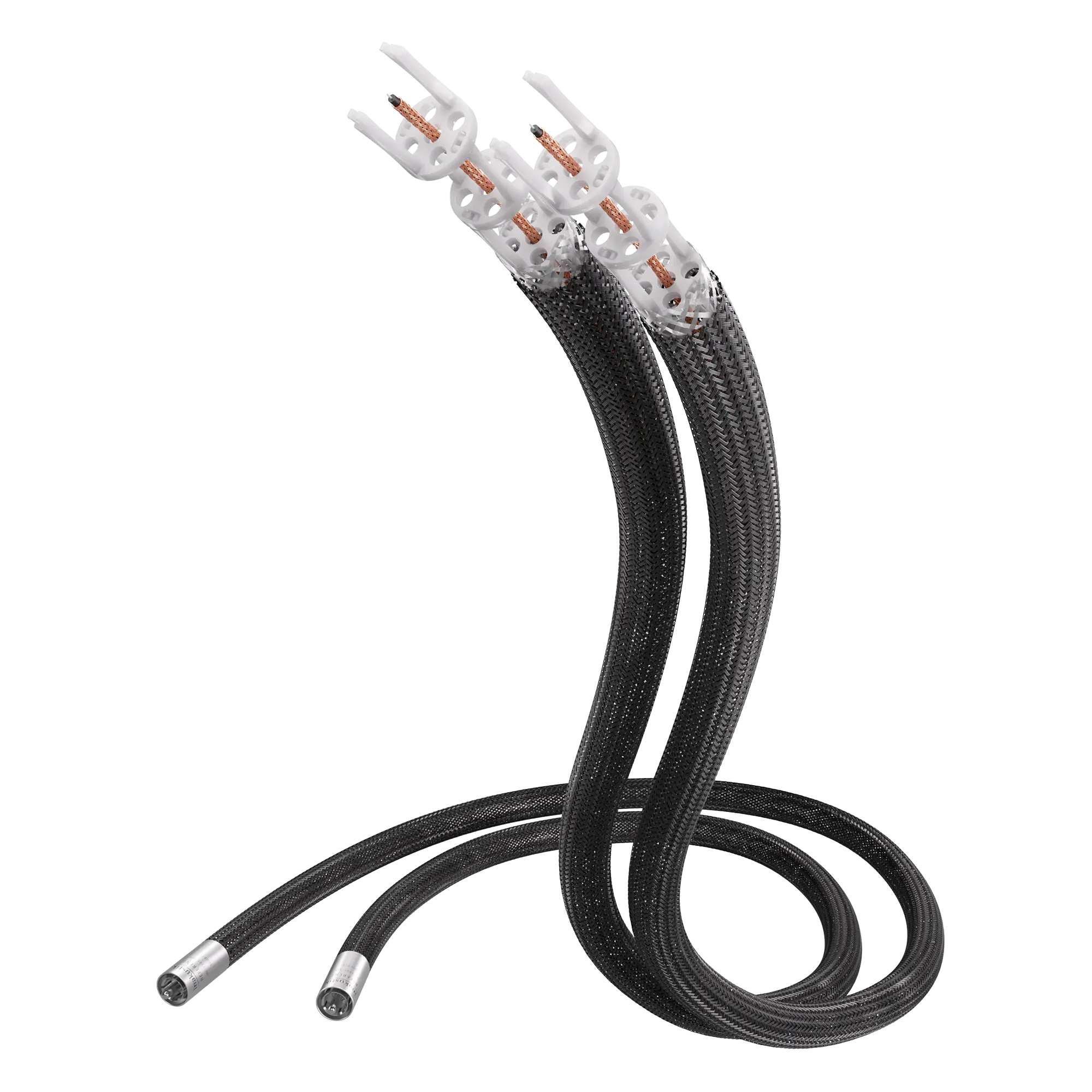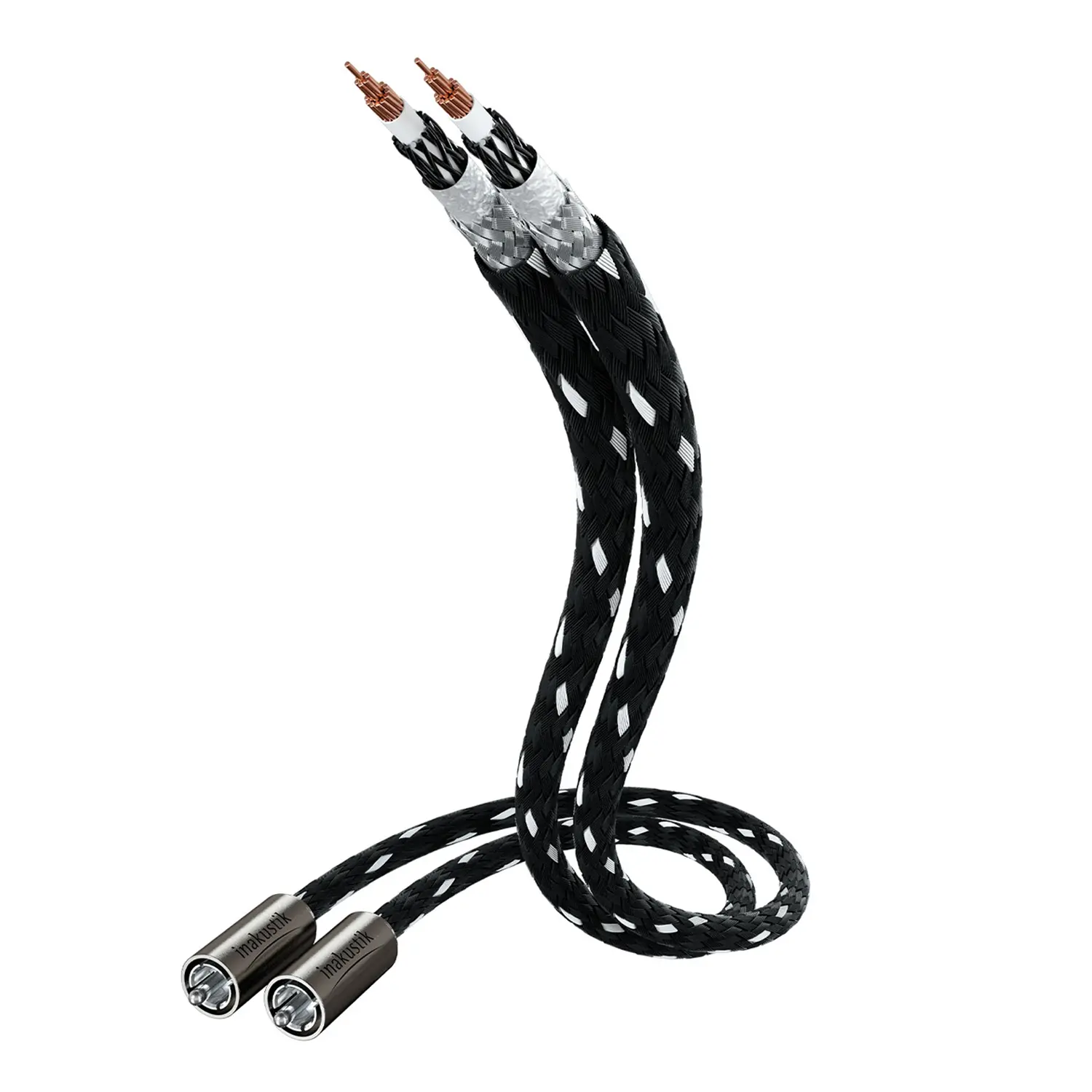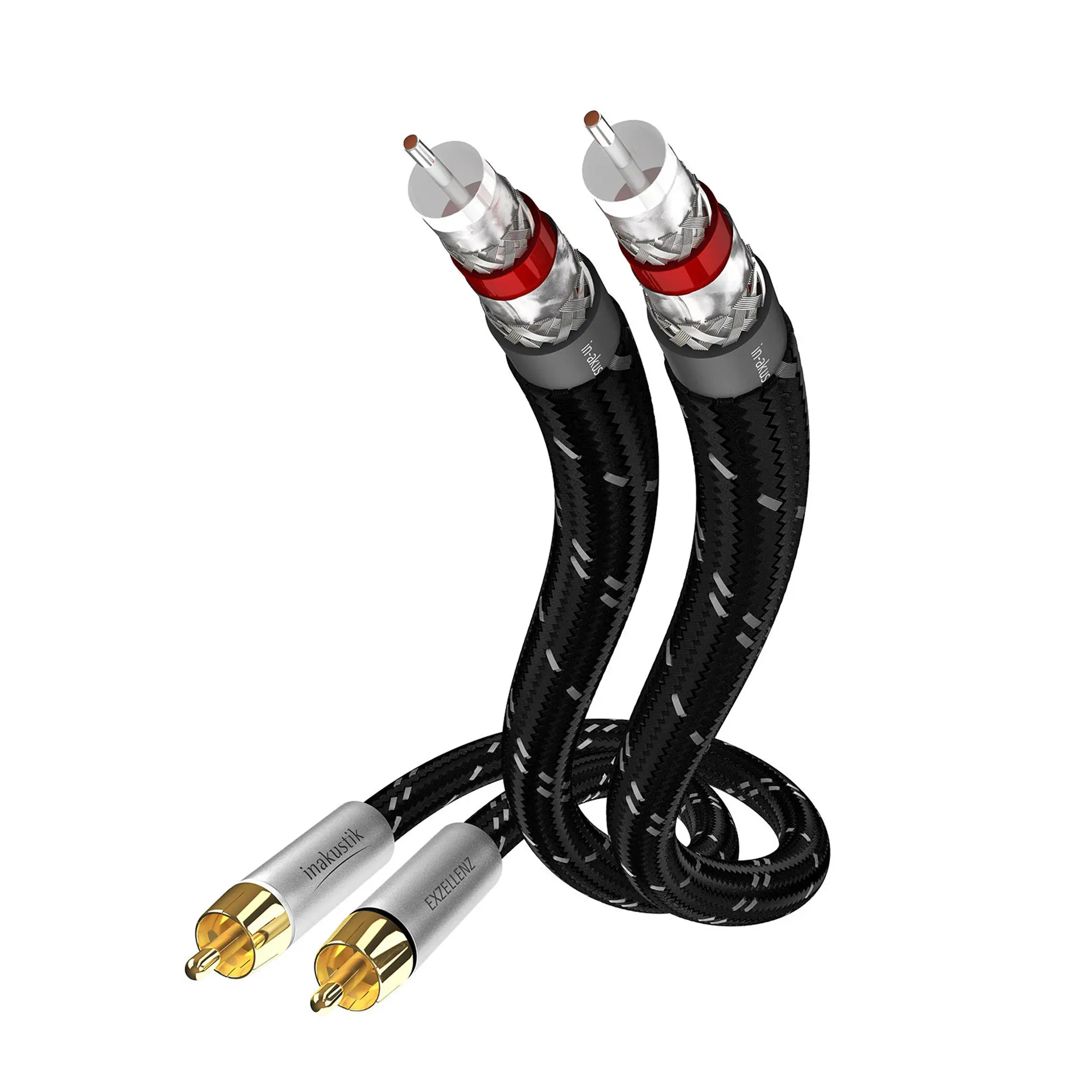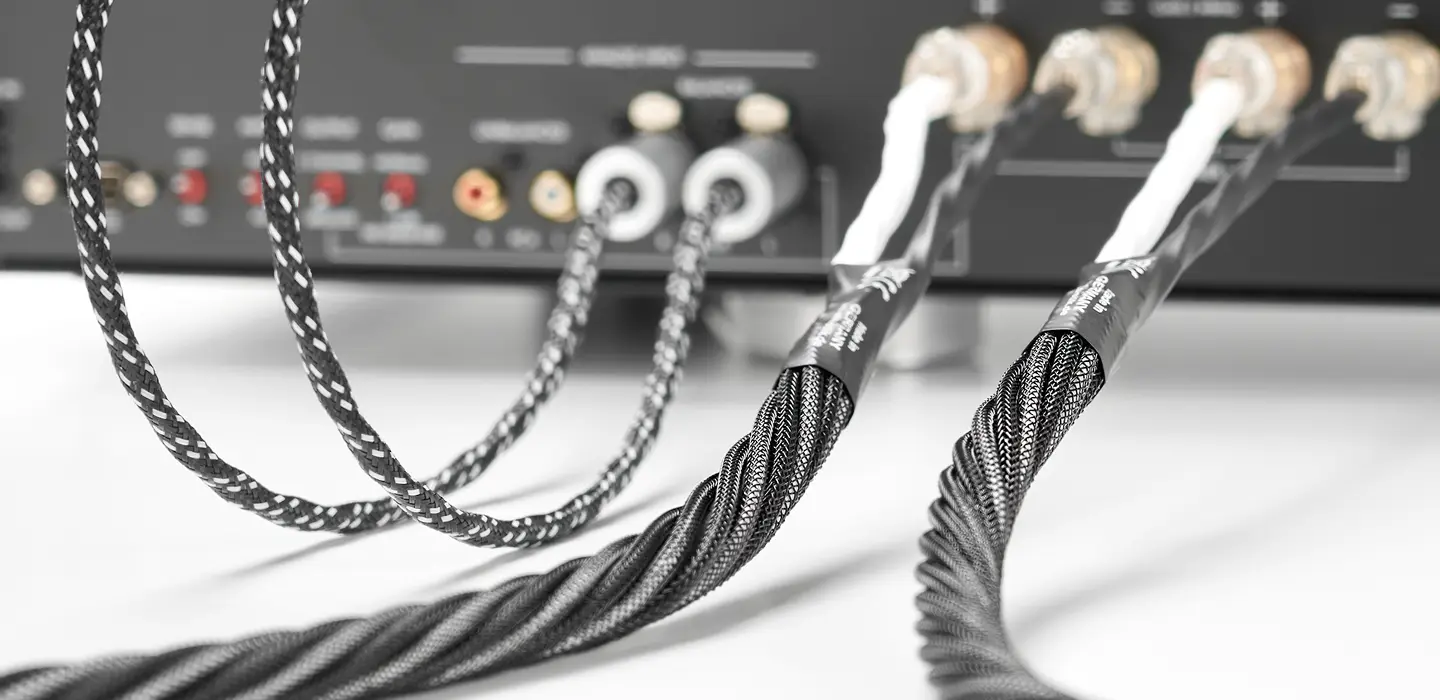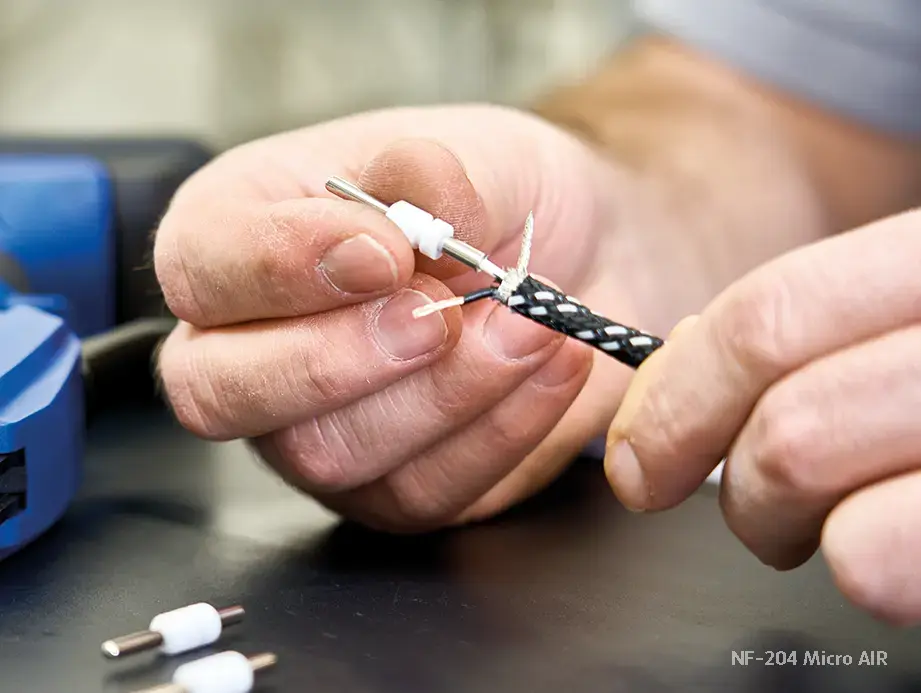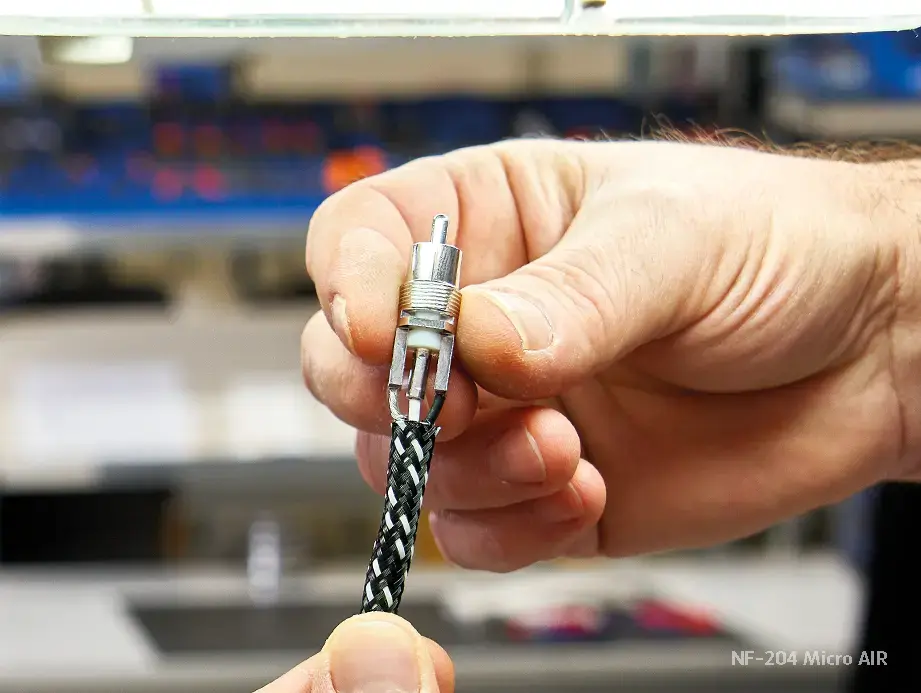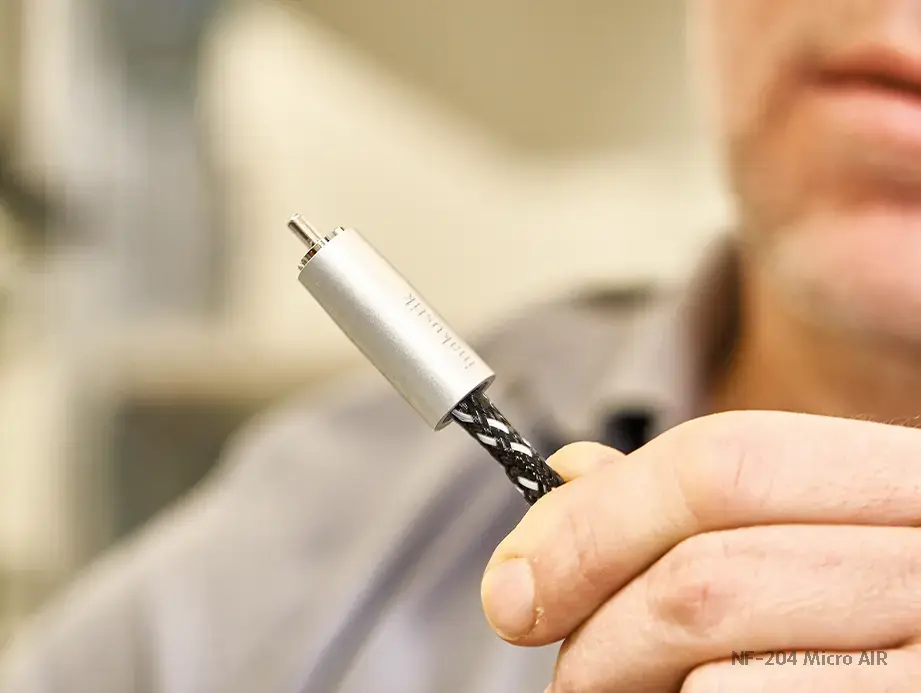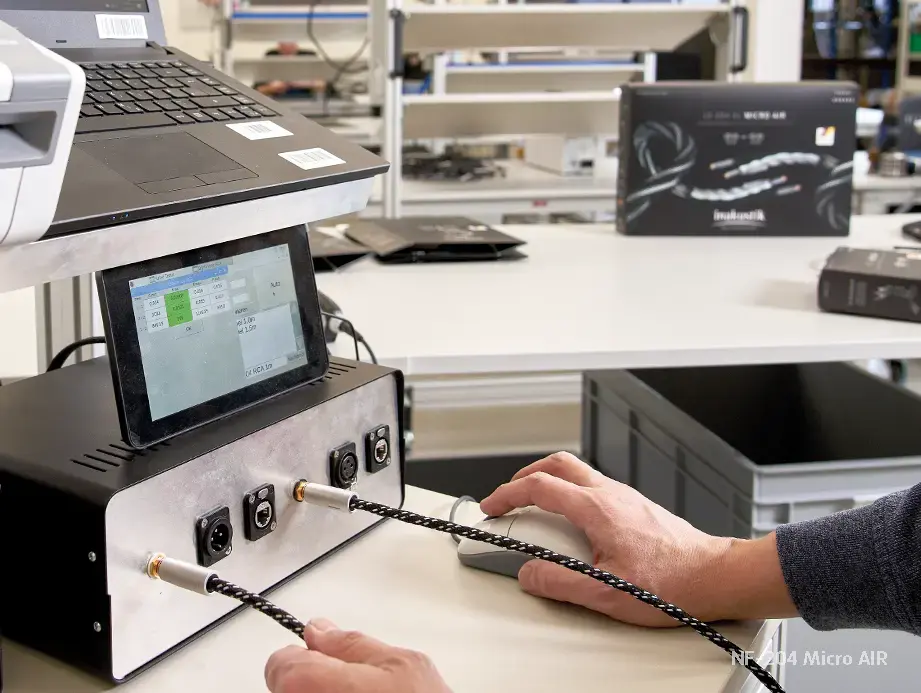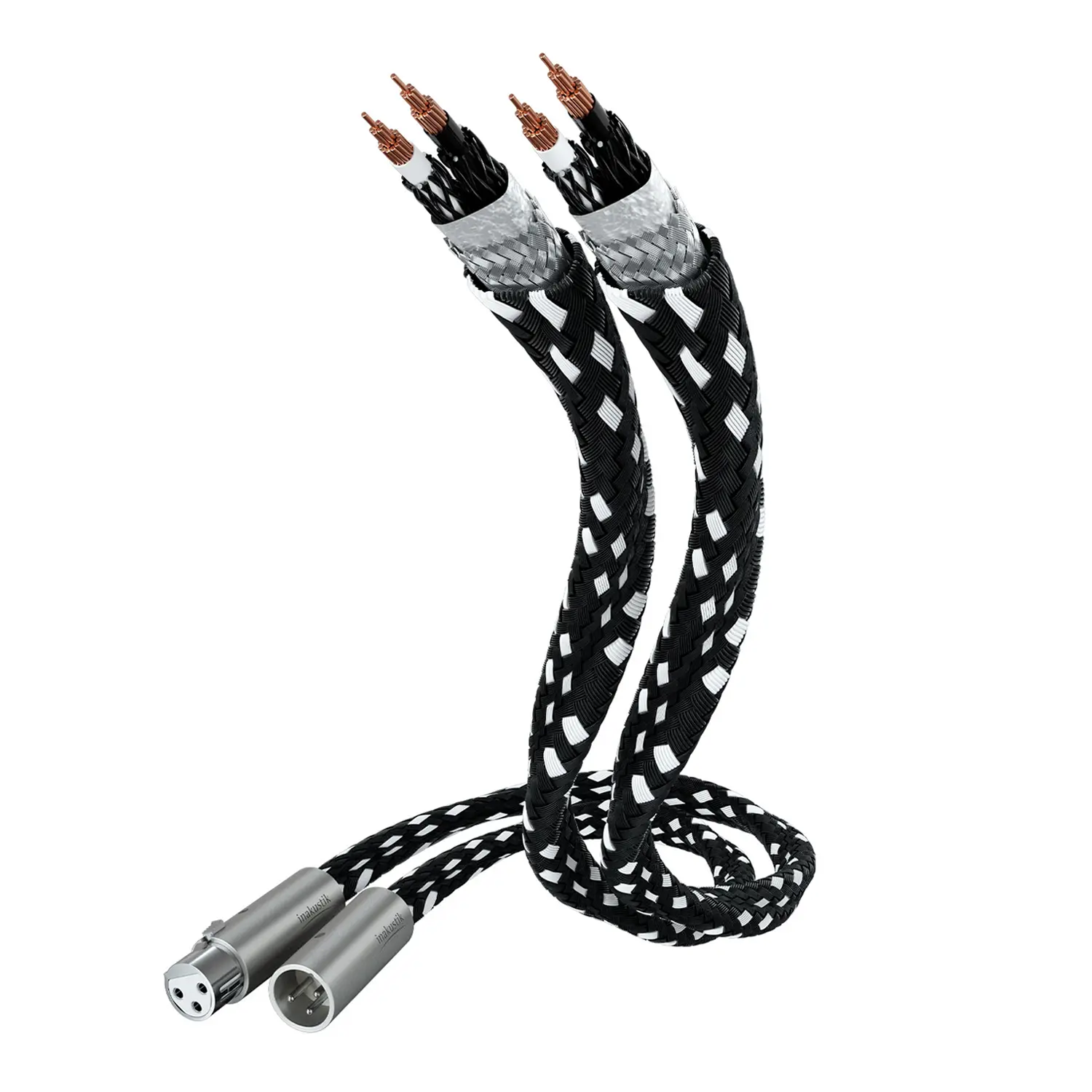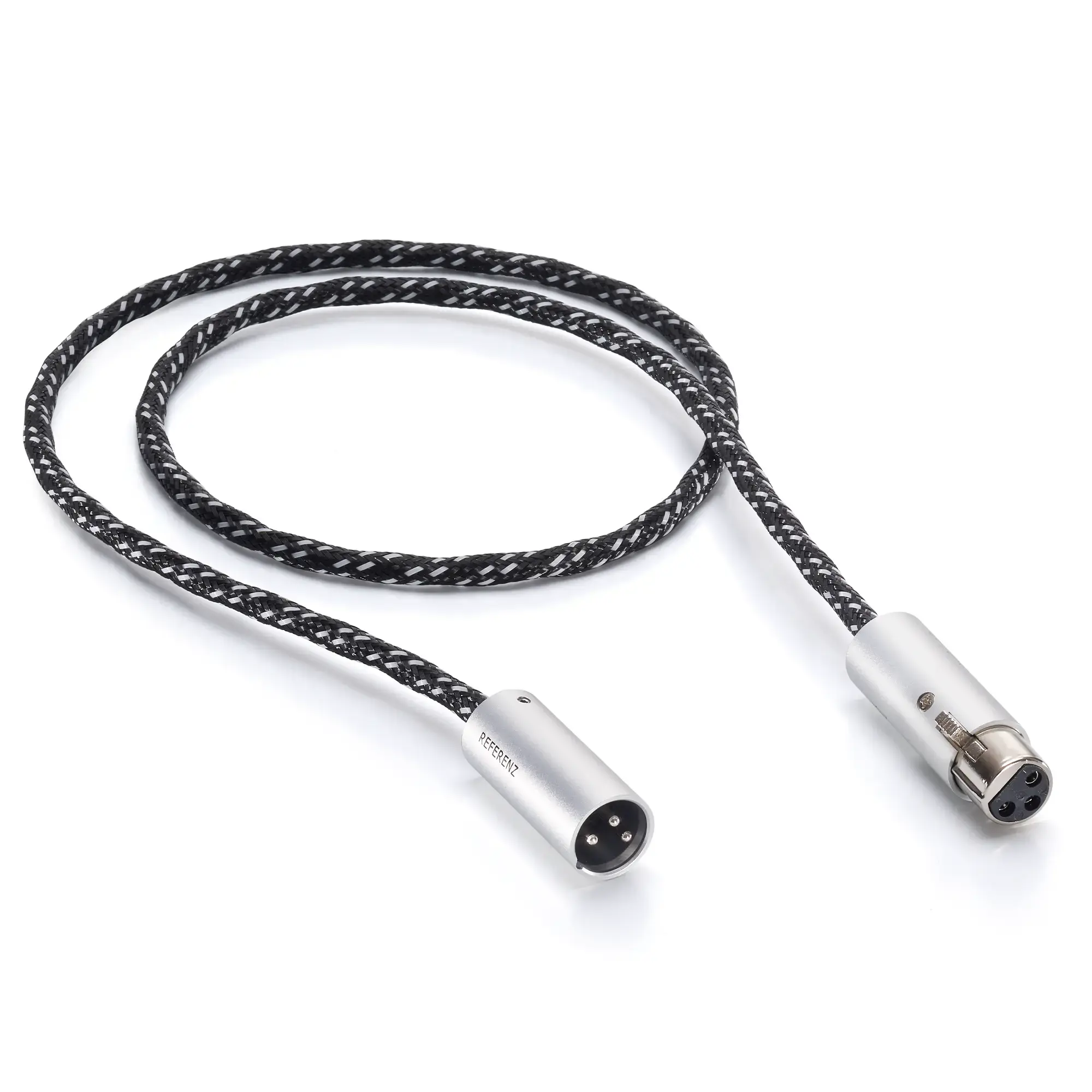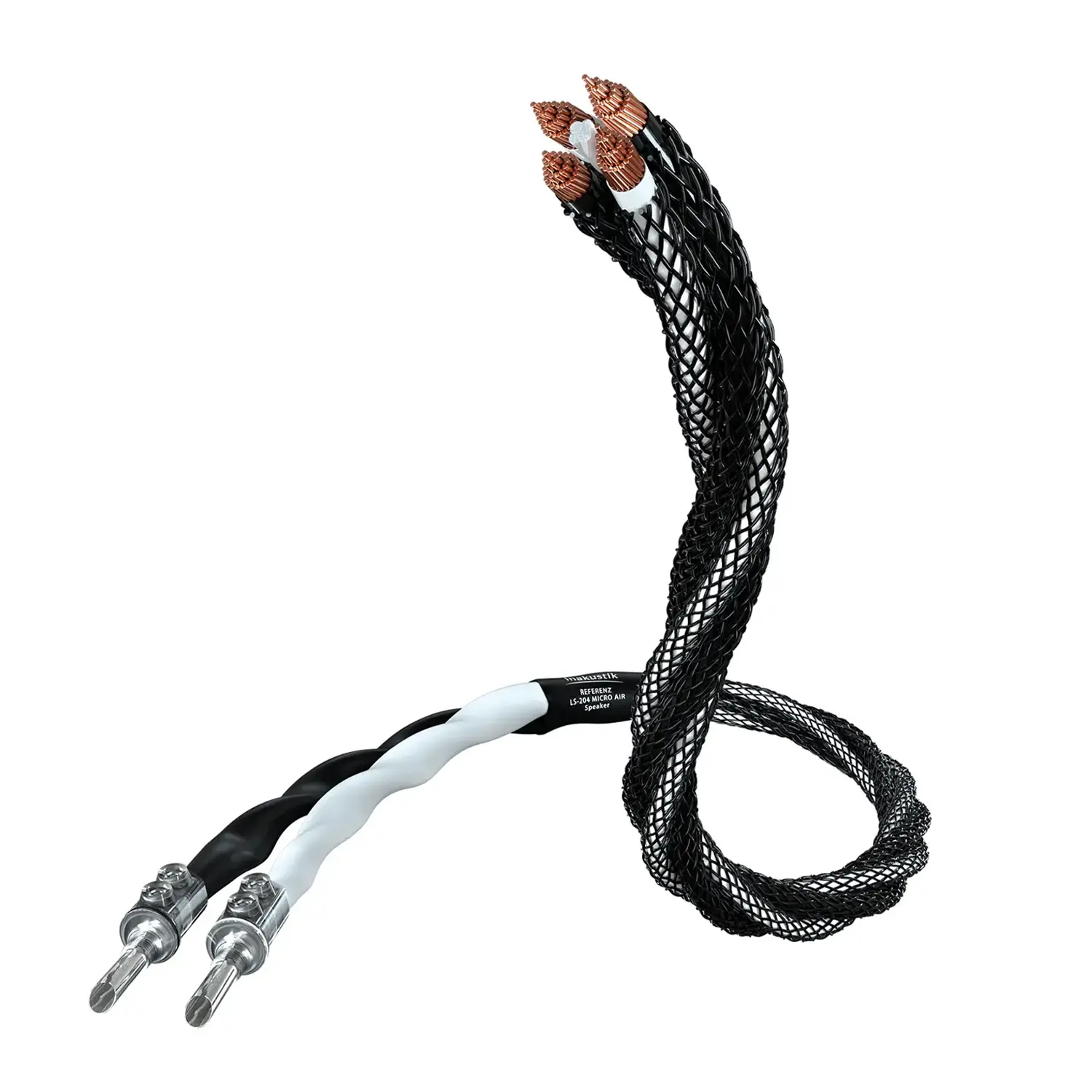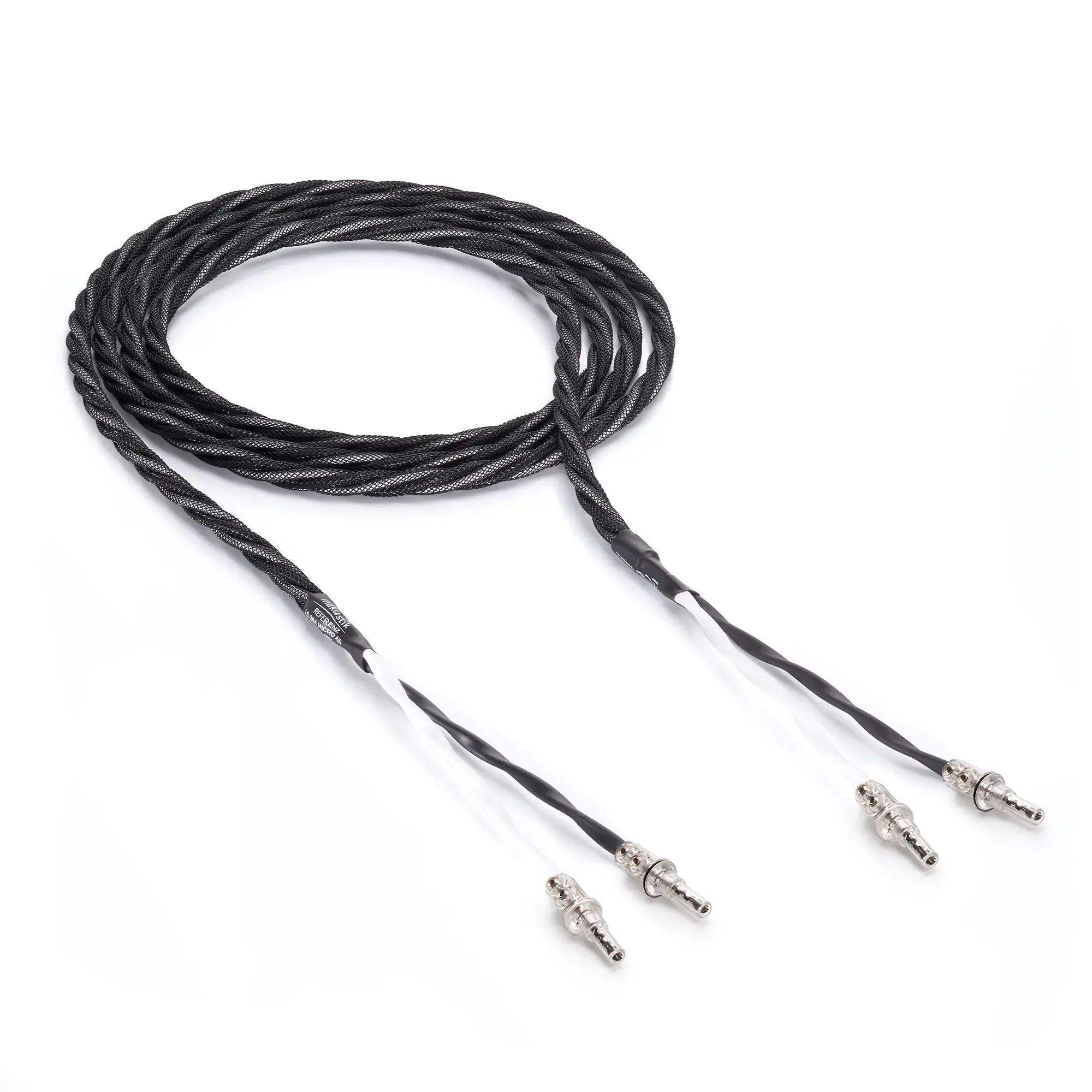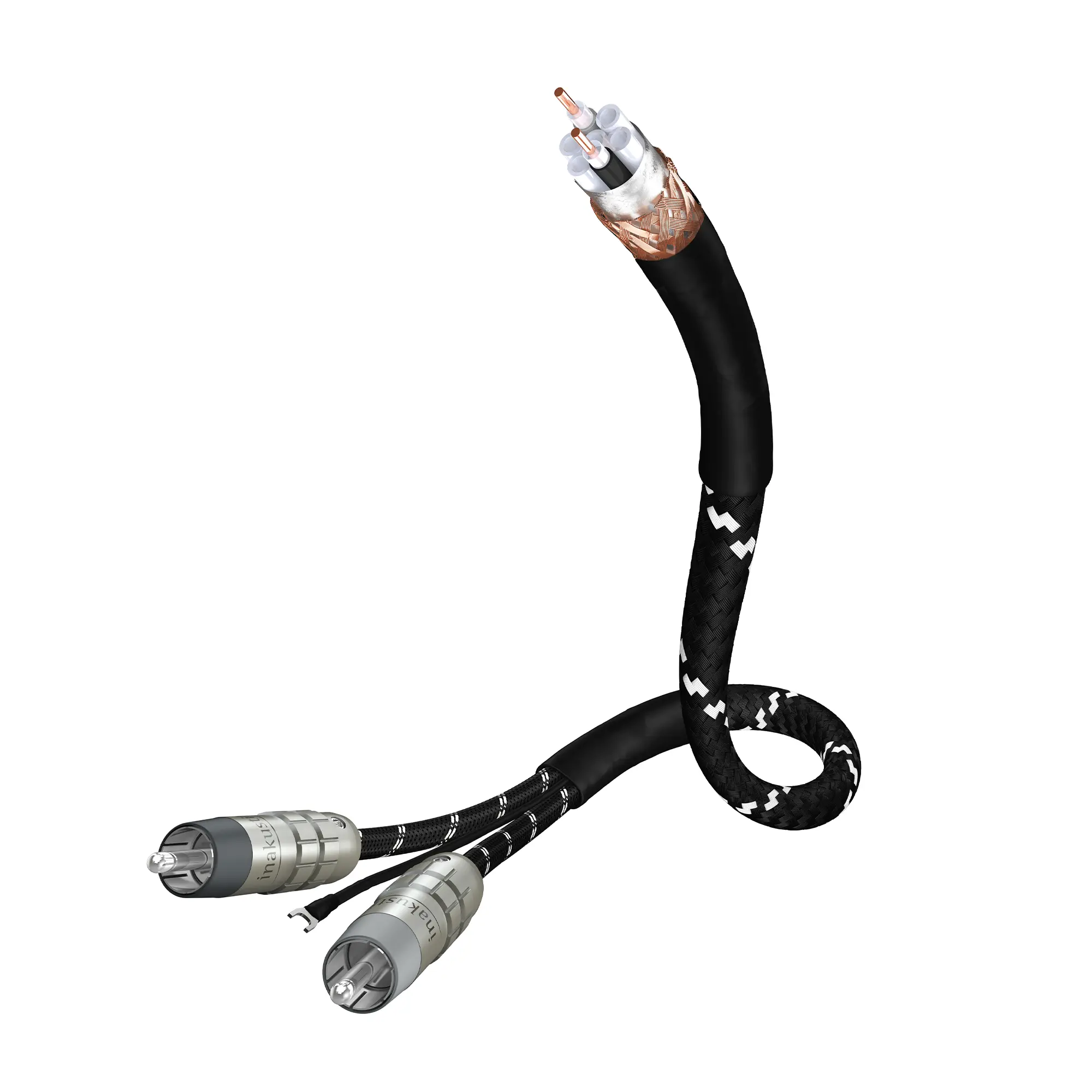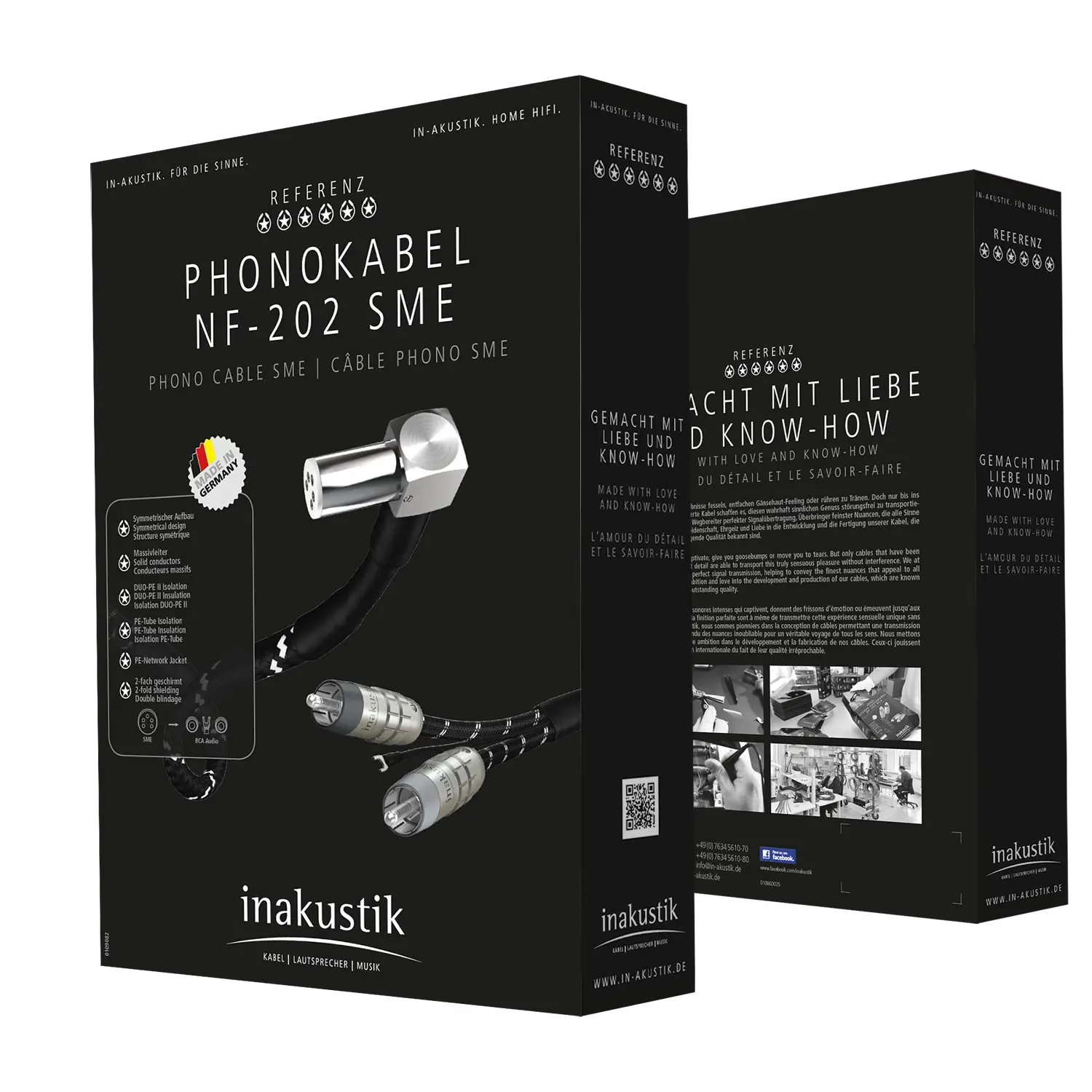€339.00*
Because the outputs on hi-fi devices only supply extremely weak signals and are sensitive to high cable capacitance, the capacitance of a cable plays a significant role when connecting components together. A “low-pass filter” can be created that cuts off high frequencies and also causes phase shifts. This is the reason why RCA and XLR audio cables are ideal companions for the air-based insulation used in the MICRO AIR technology. Another special feature of the NF-204 Micro AIR is its symmetrical architecture, which guarantees high immunity to EMC radiation. Alone or in combination with the LS-204/LS-204-XL, the NF-204 Micro AIR opens up the connection floodgates and allows your components to perform at their very best.
| Application: | High-end audio cable |
|---|---|
| Cable diameter: | 6.5 mm |
| Conductor design: | Concentric copper |
| Conductor material: | High-purity OFC copper |
| Conformity: | CE, REACH, RoHS |
| Connector assembly: | Pressure-grouted contacts (1.5 tonnes) |
| Connector housing: | Solid metal |
| Contact enhancement: | Rhodium-coated |
| Contact material: | Tellurium copper |
| Customized assembly: | On request |
| Design: | Symmetrical |
| Dielectric: | Air chambers |
| Floating shield: | Yes |
| Jacket: | PE network jacket |
| Length: | 0.75 m, 1 m, 1.5 m |
| Shielding: | 2-fold (braid + foil) |
| Product group: | Home HiFi |
| Product category: | Analog interconnects |
| Quality: | Referenz |
| Technology: | Micro AIR Double mono |
| Connector: | 2 x RCA > 2 x RCA |
| Connector highlight: | Spring-loaded contact fork |
| Made in Germany: | Yes |
| Free trial listening: | Yes |


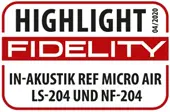

- 1 x stereo set Referenz NF-204 RCA Micro AIR
- Quality certificate
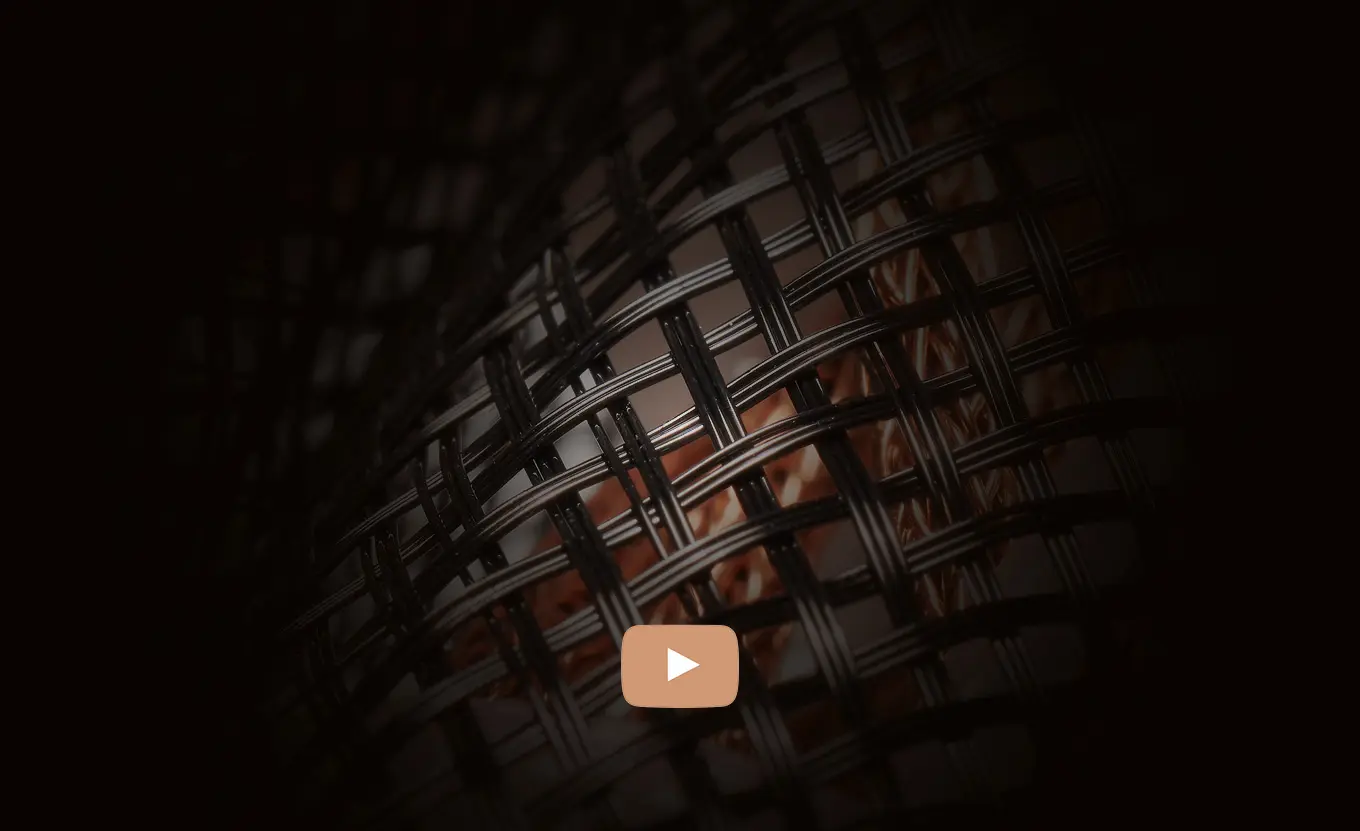
Because the outputs on hi-fi devices only supply extremely weak signals and are sensitive to high cable capacitance, the capacitance of a cable plays a significant role when connecting components together. A “low-pass filter” can be created that cuts off high frequencies and also causes phase shifts. This is the reason why RCA and XLR audio cables are ideal companions for the air-based insulation used in the MICRO AIR technology. Another special feature of the NF-204 Micro AIR is its symmetrical architecture, which guarantees high immunity to EMC radiation. Alone or in combination with the LS-204/LS-204-XL, the NF-204 Micro AIR opens up the connection floodgates and allows your components to perform at their very best.
Cable capacitance plays a decisive role, especially for audio cable connections between individual devices. As the signal sources are very weak and react sensitively to high cable capacitance, audio cables are virtually predestined for air insulation using air helix technology.
In addition to this, we have also developed a completely new and entirely solder-free RCA connector for the Referenz NF-1205 Air. It consists of several component parts that are only joined together during the course of the assembly process. As with the loudspeaker cable, the thin layer of enamel is first removed from the high-purity copper wires of the "Cross Link Super Speed" waveguide by machine. Then, the contact pin of the connector, which is made of tellurium copper, is pressure-grouted with the conductor using a force of 1.5 tonnes. The connection of the shielding is also completely new: It is now hermetically sealed with screws.
Compared to the NF-204 Micro AIR, the NF-104 Micro AIR has a conventional, coaxial architecture. In addition to the Micro AIR technology, another special feature of the NF-104 is the newly developed RCA connector, which is completely solder-free. Omitting the solder significantly reduces transition resistance and element formation. As the name suggests, the NF-104 harmonizes particularly well with the LS-104 speaker cable. Both cables are the perfect way of entering the world of Micro AIR technology.
The Exzellenz audio cable has two separately routed shields. This optimally protects the sensitive audio signals against external interference. The silver-plated conductor transports the analog music signal extremely precisely and enables a crystal-clear and dynamic sound even with high-resolution audio formats. The solid, 24k gold-plated full metal connectors ensure optimum contact and minimal contact resistance on a long-term basis.
€339.00*
€979.00*
€279.00*
€129.00*
Login
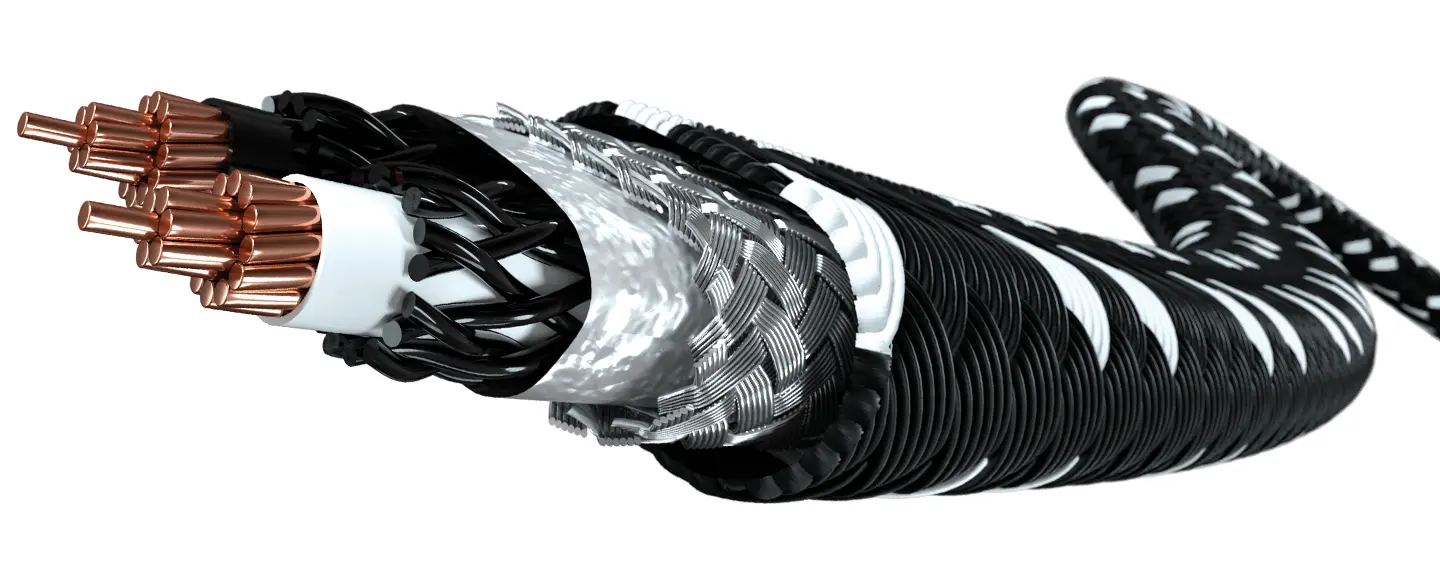
Micro AIR technology
We are not able to switch off the laws of nature, so the best we can do is use them as ingeniously as possible. Due to the laws of nature, every cable exerts so-called parasitic effects. These include capacitance – the capacity to store energy like a battery and release it again with a time delay. This effect has a considerable impact on the transmission of audio signals and is therefore unwelcome. Capacitance is a physical property, and its value depends on a number of different factors, one of the most important of which is the insulation material used, also known as the “dielectric”. The dielectric material can considerably increase the capacitance of the cable. Because air doesn’t do this, it’s ideal for insulation purposes. One of the insulation elements in the Micro AIR technology is a complex, diamond-shaped structure. The tiny chambers created by this structure increase the distance between the conductors and raise the air content of the insulation. This method reduces troublesome capacitance effects and optimizes the cable’s transmission characteristics for the sensitive audio signals it needs to transport.
Concentric copper
Unlike the sometimes chaotic arrangement of individual wires in conventional conductor designs, concentric copper conductors are arranged in a precisely defined multi-layer pattern. This design reduces irregular contact points between the wires, which harmonizes the signal flow and minimizes runtime differences. Impulses can be reproduced with pinpoint accuracy and the spatial information of the music is retained. A thin layer of polyethylene protects the high-purity copper from oxygen and thus from oxidation.
Copper is the best electrical conductor after silver under normal conditions. Compared to cheap CCA (Copper Coated Aluminum) in particular, copper has a significantly better conductivity and is also mechanically more resilient. The conductors of the Micro AIR cables are made of high-purity OFC (Oxygen Free Copper).
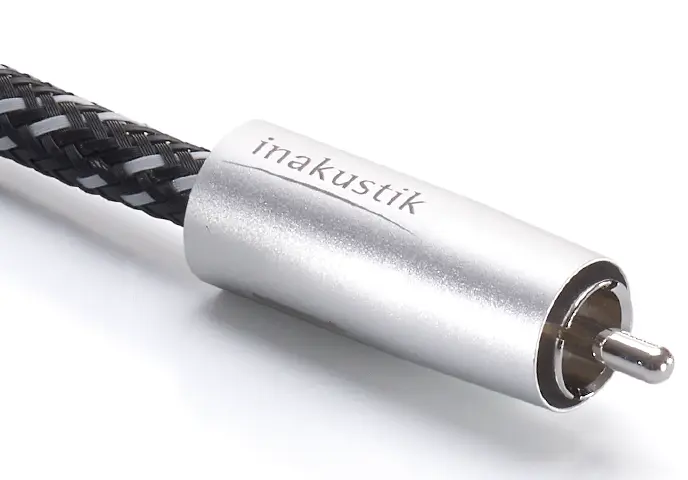
Electrostatics and capacitance
It’s something we’re all familiar with: when you take off a sweater with a high synthetic content you hear a crackling sound. The reason for this is that the integrated plastic material stores electrical energy, and then discharges it again. The same thing happens in the dielectric material of a cable. It “absorbs” electrical energy like a sponge and then releases it again. In the case of an audio cable, however, this electrical energy is part of the audio signal.
This problematic storage capacity of a cable is referred to as its “capacitance”. While capacitors intended to store energy should have a correspondingly high capacitance, the capacitance of a cable should be as low as possible. If this is not the case, it can have a serious detrimental effect on the transmission characteristics and also lead to interactions with connected electronic devices. The ideal solution is therefore air insulation such as that implemented with the Micro AIR (and previous AIR technology), reducing the capacitance to an absolute minimum.
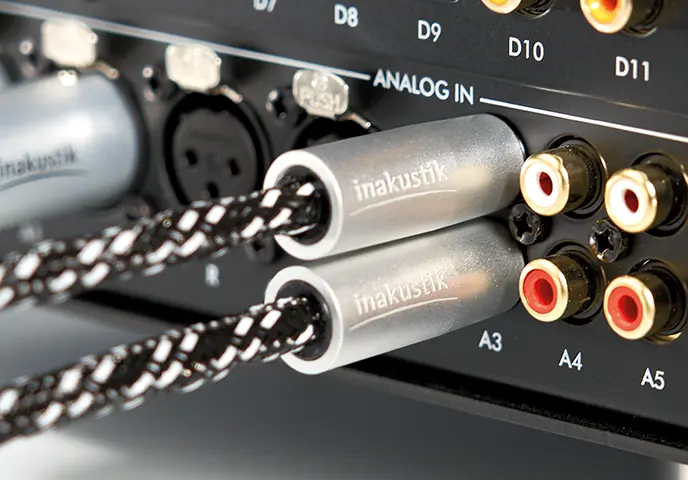
Cables should not make any sound
The Referenz AIR series cables have already caused something of a sensation in the world of high-end connections. And we have used the very same principles of physics to develop our Referenz Micro AIR series. As the name suggests, air as insulation also plays a key role with these high end connections due to the excellent dielectric properties.
Cables in general don’t make any sound; they have a filtering effect and interact with the devices. We believe audio connections should be as unobtrusive as possible and cause no sound coloration. These would perhaps be astonishing to hear the first time, but they actually distort the original, and eventually are annoying. The trick is to adapt the physical filter effect through the architecture and choice of materials so that losses and interactions are reduced to a minimum. This was our goal when developing the Referenz Micro Air series – and we believe we have achieved our goal once again.
Made in Germany
Just like the AIR Helix cables, the Referenz high-end cables with Micro AIR technology are also manufactured in our own factory in Germany. Along with the complex, manual assembly of the cables, this of course also includes the corresponding quality control. Every cable is put through its paces after production. Both functional tests and mechanical tests are carried out. And of course we also check the live performance as part of product development – for maximum precision and low-loss signal transmission.
The cable manufacturing unit
The beating heart of in-akustik is our manufactory. This is where our success story is rooted – permeated by a congenial working atmosphere, a love of music and a passion for detail. At in-akustik, we believe musical enjoyment stems from a listening experience that remains as close as possible to the original recording and the artist’s interpretation of the piece. That’s why we boast a committed workforce that combines curiosity with a keen sense of precision. With a fascination for music and things that are really special – like the development of our complex AIR cables.

